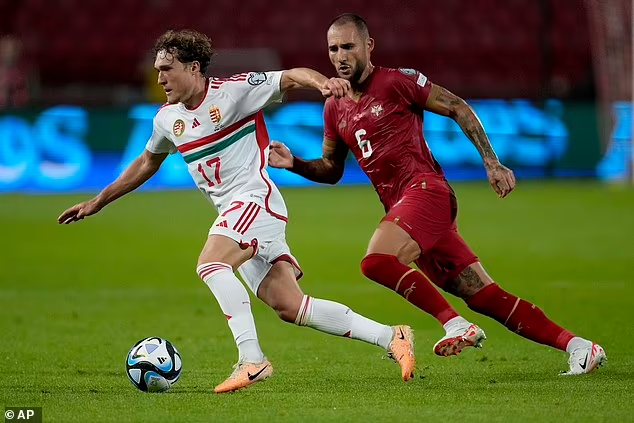The Awkward Questions Behind Hungary’s Football Revival

There is a stadium in the town of Felcsut. The population of Felcsut, which is 28 kilometers outside of Budapest, is less than 2,000. However, the stadium has about 4,000 seats. and with a certain flair. Slate tiles and copper turrets adorn its roof, which is held up by lofty oak columns that are accentuated by creative architectural lighting. The expected cost exceeded £10 million. The Pancho Arena is a hybrid of a monument honoring Hungary’s past and a declaration of its future..

Hungary played West Germany in the World Cup final seventy years ago, 150 miles south of Stuttgart, where the two teams meet on Wednesday at Euro 2024. Hungary was the overwhelming favorite to win the Bern, Switzerland, final after defeating the Germans 8-3 in the group round. However, they were shockingly defeated 3-2 after building a two-goal lead inside the first eight minutes, losing for the first time in five years and ending a 31-match unbeaten streak.
They never again reached such heights.

The brilliant team from Hungary, dubbed the “Golden Team” or “Mighty Magyars,” disintegrated two years later when the Soviet Union brutally put an end to the Hungarian Uprising in October 1956, with many of its members opting not to go back home. The best of them all, Ferenc Puskas, the captain of Hungary, ended up at Real Madrid, where he was dubbed “Pancho.” The stadium in Felcsut bears Puskas’ nickname thanks to the village’s most famous resident – Hungary’s football-crazy Prime Minister Viktor Orban.
First elected in 1998 at the age of 35, and now the longest-serving leader in the European Union, Orban has transformed Hungary, rewriting the country’s constitution and election laws. What he has changed it into is open to debate. Orban has described his approach as “illiberal democracy” and “Christian democracy”. In 2022, the European Parliament opted for a “hybrid regime of electoral autocracy”, accusing Orban and his government of “deliberate and systematic efforts to undermine European values”., external
On the new stadium in his hometown, Orban is certain however.

“It’s art,” he said in February 2017.
“It would be easier to build up something more simple, you know, but this is evidence that football is part of art.”
Orban wasn’t born when Hungary played in the 1954 World Cup final, yet his childhood passion for the game was fuelled by the near-mythical tales of the ‘Golden Team’.
Orban was a good footballer as well. He played for the youth team of top-flight team Fehervar (known as Videoton at the time), before law school and a political career – supercharged by the fall of communism in Eastern Europe in 1989 – focused his career aspirations elsewhere.
When Orban and his Fidesz party suffered election defeats in 2002 and 2006, he retreated to Felcsut and football.

He would phone up old friends to arrange impromptu kickabouts. In 2007, Orban founded a new club there – the Puskas Academy. He reportedly invited then Arsenal manager Arsene Wenger to the inauguration ceremony. Wenger, it is said, politely declined.
Leave a Comment